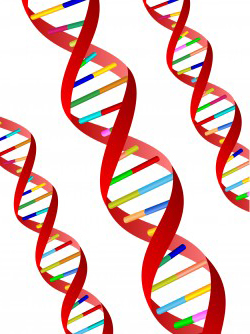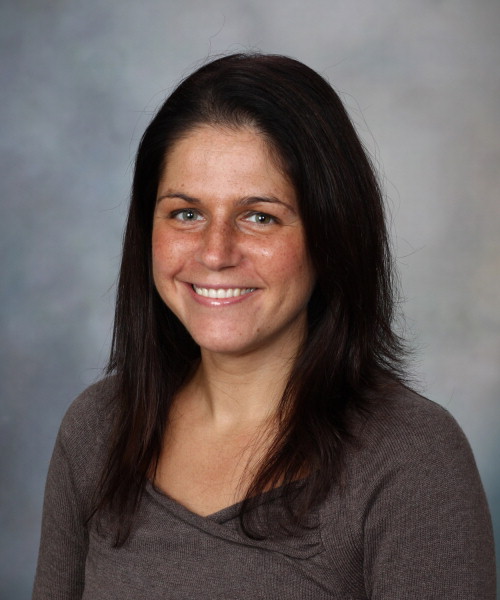
While celebrating the holidays with family and sharing stories around the table, the SADS Foundation hopes that you will also take the time to talk to your relatives about your family's history of SADS conditions. You will not only be sharing stories and learning about who has and has not been affected by SADS, but you will be protecting future generations in your family by finding out who could be at risk in the future. You might be saving a life!
Make it easy on yourself by using our Pedigree Kit, which contains suggestions for how to proceed, with letters for family members, risk questionnaires, information on testing, and a family tree to fill out. SADS-related sudden death is preventable, but only when every family member is informed. The learn more and download the Pedigree Kit, click
here. You also may contact Director of Family Support Lynn A. Johnson at [email protected] or 801-272-3023 for print materials to be sent to you directly. Have a safe and happy holiday!
|
|
Boy's Cardiac Death Led to Misuse of Genetic Test, Study Says
|
 A 13-year-old boy's sudden cardiac death led doctors to wrongly diagnose more than 20 of his relatives with a potentially lethal heart disorder in a case that illustrates the potential for genetic testing to go wrong. A 13-year-old boy's sudden cardiac death led doctors to wrongly diagnose more than 20 of his relatives with a potentially lethal heart disorder in a case that illustrates the potential for genetic testing to go wrong.
Misuse of a genetic test as well as an incorrect interpretation of the findings resulted in the misdiagnoses, which led to the boy's brother being implanted with a defibrillator he didn't need. The device has since unnecessarily shocked his heart twice, researchers said.
The search for a genetic cause of the teenager's death was done with "good intentions," said Michael Ackerman, a cardiologist and director of the Windland Smith Rice Sudden Death Genomics Laboratory at the Mayo Clinic in Rochester, Minn. But "the entire clinical evaluation was a train wreck, where wrong conclusions led to wrong turns and resulted in wrong therapies."
The family, who wasn't identified, was diagnosed with Long QT syndrome, a heart-rhythm condition named for an abnormal tracing on an electrocardiogram. They came to the clinic for a second opinion after ultimately questioning the diagnosis.
Long QT syndrome is one of Dr. Ackerman's research interests and over nearly two decades he has determined that about 40% of patients or families who come to the clinic for a second opinion with a diagnosis of long QT syndrome actually don't have it. He is senior author of a report on the current case, which was published Monday in Mayo Clinic Proceedings. Click here to read the full article.
|
|
LIVE-LQTS Study Expanded to Age 60!
|
|
The NIH-Funded LIVE-LQTS study is now enrolling individuals age 8 to 60 years old, an increase from the previous limit of age 50. The study is designed to determine how lifestyle and exercise affect the well-being of people with LQTS. Exercisers, non-exercisers, people with ICDs and without ICDs can all participate.
Participation involves a telephone interview and filling out questionnaires online or on the phone. Since all information is gathered by phone, fax, and/or internet, there are no geographic limitations to participation within the U.S., Canada, Australia, or Great Britain.
It's a three-year study, with another brief questionnaire every six months. Participants also receive a Fitbit-type pedometer, to wear a few weeks per year, which is yours to keep. All
information is kept strictly confidential. You can be participating in other studies and also participate in this one.
Whether you like to run, walk, play baseball, or sit and read a book,you can participate in this study and help us learn more about lifestyle choices and LQTS. Comments from participants: "I'm so excited to start the study!" "This study captures the biggest question in my life right now..."
Many families are participating together, parents and children--
And all the kids (and adults too) are excited to get and wear the Fitbit. For more information, click here.
|
|
What's Up at Children's Hospital of Atlanta?
|
Clinical Presentation of Pediatric Patients at Risk for Sudden Cardiac Arrest
 AUTHORS: Dalal A1, Czosek RJ2, Kovach J3, von Alvensleben JC4, Valdes S5, Etheridge SP6, Ackerman MJ7, Auld D8, Huckaby J8, McCracken C8, Campbell R9.
AUTHORS: Dalal A1, Czosek RJ2, Kovach J3, von Alvensleben JC4, Valdes S5, Etheridge SP6, Ackerman MJ7, Auld D8, Huckaby J8, McCracken C8, Campbell R9.
OBJECTIVES: To identify the clinical presentation of children and adolescents affected by 1 of 4 cardiac conditions predisposing to sudden cardiac arrest: hypertrophic cardiomyopathy, long QT syndrome (LQTS), catecholaminergic polymorphic ventricular tachycardia (CPVT), and anomalous origin of the left coronary artery from the right sinus of Valsalva (ALCA-R).
STUDY DESIGN: This was a retrospective review of newly diagnosed pediatric patients with hypertrophic cardiomyopathy, LQTS, CPVT, and ALCA-R referred for cardiac evaluation at 6 US centers from 2008 to 2014.
CONCLUSION: Important patient and family history and physical examination findings may allow medical providers to identify many pediatric patients affected by 4 cardiac disorders predisposing to sudden cardiac arrest.
Click here for the full article.
|
Demystifying the Congenital Long QT Diagnosis
|
 An article from Emergency Physician Dr. Jennifer White who also is a SADS famiy member. An article from Emergency Physician Dr. Jennifer White who also is a SADS famiy member.
A nine-year-old healthy girl at summer camp, running up a hill to chase her friend, collapses and fractures her left arm. She is seen in the local emergency department where she is diagnosed with a supracondylar fracture and dehydration. Three months later her brother is found dead in his bed in the morning.
A 26-year-old woman is asleep on the couch one week after the uneventful delivery of her first baby. The pizza delivery man rings the doorbell and when her husband arrives in the living room with the food he finds her gurgling and unresponsive. He initiates CPR and medics are able to restore sinus rhythm with defibrillation. She is diagnosed with seizure disorder at the local emergency department and started on Keppra. Two weeks later she has another episode shortly after her husband's alarm wakes her from a sound sleep but this time she cannot be revived. Post mortem genetics reveal c-LQTS type 2 and her baby is also gene positive.
A 10-year-old boy is at swim team practice, a thunderstorm begins and a whistle blows to get the kids out of the pool. He jumps out quickly to a crash of thunder and has a witnessed face first syncopal episode that lasts seconds. He arrives in the ED cold and wet with a fractured nasal bone and lip laceration. He is told to eat more carbohydrates prior to practice. About six months later his father has cardiac arrest during a triathlon.
A 34-year-old lawyer is preparing for her third marathon by exercising daily at the gym. After a 45-minute workout she has a syncopal episode and falls off the treadmill, sustaining a forehead laceration but is otherwise uninjured. At the local ED, she is given the V.I.P. treatment since her law firm is a major malpractice litigator. The vitals are all normal except for a pulse of 42, just what is expected for this highly conditioned athlete. The plastic surgeon provides three sutures, the neurologist diagnoses "convulsive syncope," is discharged. She returns 72 hours later in cardiac arrest but cannot be revived.
What do all of these cases have in common? Each of these patients was eventually or retrospectively diagnosed with congenital long QT syndrome (c-LQTS).
Click here for the rest of the article.
|
SADS Foundation Staff Members Attend AHA Scientific Sessions
|
SADS Foundation staff members Alice Lara, Lynn Johnson, and Jan Schiller attended the American Heart Association Scientific Sessions on November 11-16 in New Orleans.
They were able to meet with several of the corporations who collaborate with us to provide medical education seminars, webinars for physicians and families, and help for our Speakers' Bureau. Alice and Lynn also met with the newly expanded NIH-funded LIVE-LQTS study researchers. (see related E-newsletter article).
Additionally, Alice, Lynn, and Jan were able to attend several of the sessions to stay up-to-date about the latest in research that include the following:
- IPSCs (induced pluripotent stem cells) for Personalized Cardiovascular Medicine
- Biologic Pacemakers: Is Reprogramming Our Best Hope?
- Big Data: Integrating Phenotype, Genotype, and Pharmacology to Transform Care
- Antiarrhythmic and Gene Therapy in CPVT
- Drugs and Invasive Therapies in Brugada Syndrome
- New Late Sodium Channel Blockers for LQT3.
|

The safe use of the CredibleMeds® lists of medications requires that the user have the most up-to-date lists and be aware when changes have been made. Therefore, we wish to inform you of the following:
We have been closely following the entire class of proton pump inhibitors because of their proven ability to induce hypomagnesemia and QT prolongation. In 2014 we found evidence of an association between torsades de pointes (TdP) reports and the use of pantoprazole and, for thiis reason, this drug was added to the Conditional Risk of TdP list. This category was chosen because the drug creates the conditions (hypomagnesemia, hypokalemia and increased QT) that potentiate a risk of TdP. We now have similar evidence for omeprazole, esomeprazole and lansoprazole and we have added these drugs to the Conditional Risk list.
We have added the diuretic bendroflumethiazide (also named bendrofluazide and brand name Aprinox) to the Conditional Risk of TdP list for the condition of use with Known Risk drugs and its induced condition of hypokalemia.
We have added the natural product ibogaine, a plant-based psychedelic drug used by some for treatment of narcotic addiction, to the list of drugs with Known Risk of TdP.
We have added the antiretroviral drug efavirenz (brand name Sustiva) to the Possible Risk of TdP list because there is clear evidence of QT prolongation without evidence of TdP at this time.
Also, because the above newly added drugs can cause QT prolongation, they will also be placed on the list of Drugs to Avoid (if at all possible) in patients with Congenital Long QT Syndrome.
|
|
|
|
November 2016 - In This Issue
|
|
|
November 17, 2016
Dinner Seminar
with Dr. Michael Ackerman
Chicago, IL
November 18, 2016
Paint in memory of Gianna
Wallingford, CT
November 19, 2016
Baltimore/DC Area SADS Foundation Family Support & Educational Meeting
Baltimore, MD
November 26, 2016
Brittany's Trees
Carol Stream, IL
December 2-3, 2016
Roundball Rumble
Savannah, GA
December 8, 2016
SADS Symposium
Boston, MA
|
|
|